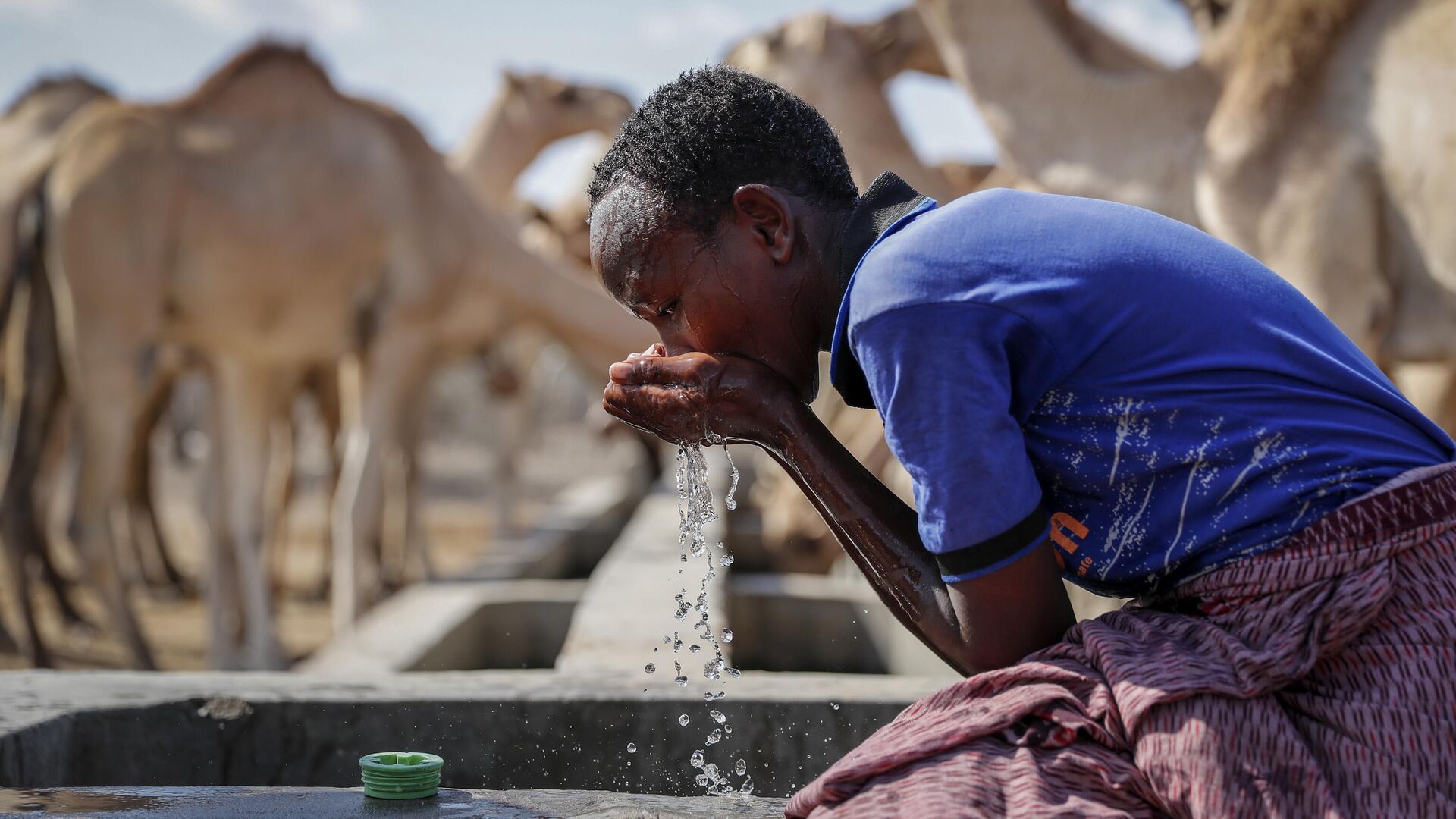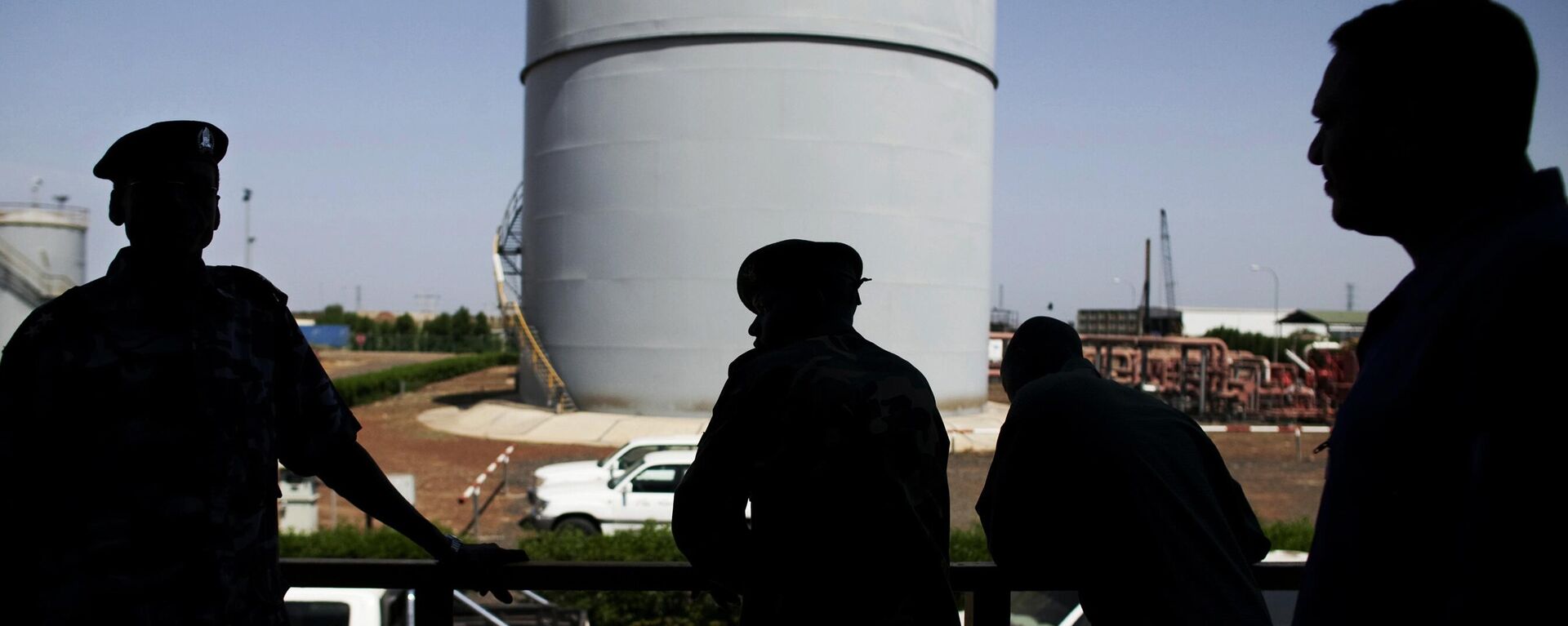https://en.sputniknews.africa/20240715/ethiopia-makes-significant-strides-in-clean-water-access-reaching-nearly-70-coverage-1067511360.html
Ethiopia Makes Significant Strides in Clean Water Access, Reaching Nearly 70% Coverage
Ethiopia Makes Significant Strides in Clean Water Access, Reaching Nearly 70% Coverage
Sputnik Africa
Ethiopia has vast water resources, with 12 river basins generating a substantial annual runoff of 122 billion cubic meters. However, most of the country's... 15.07.2024, Sputnik Africa
2024-07-15T13:10+0200
2024-07-15T13:10+0200
2024-07-15T13:10+0200
sub-saharan africa
ethiopia
water security
water resources
east africa
development
drought
climate
climate change
https://cdn1.img.sputniknews.africa/img/07e8/07/0f/1067511969_0:311:3072:2039_1920x0_80_0_0_7a5a2c13e42542da918bd12086d91c42.jpg
Ethiopia has made notable progress in expanding access to clean drinking water, with nationwide coverage now reaching almost 70%. This was announced by the Ministry of Water and Energy during a review of its performance in the past fiscal year and plans for the current budget year.The ministry highlighted the successful implementation of various initiatives, particularly in water management, drinking water and sanitation, and energy development.The official attributed the positive developments to the ministry's commitment to safeguarding water resources, expanding access to clean water and sanitation, and promoting renewable energy use in both rural and urban areas.A key factor in this success is the implementation of the "Dam at My Door" project, which focuses on collecting rainwater to support drought-affected regions.Moreover, the ministry has streamlined project management by coordinating water well drilling and pipeline construction efforts, leading to faster service delivery.
https://en.sputniknews.africa/20240709/ethiopia-south-sudan-work-together-to-build-alternative-oil-transportation-infrastructure-1067436051.html
ethiopia
east africa
Sputnik Africa
feedback@sputniknews.com
+74956456601
MIA „Rossiya Segodnya“
2024
Muhammad Nooh Osman
https://cdn1.img.sputniknews.africa/img/07e7/04/0a/1058467512_0:0:1280:1280_100x100_80_0_0_ec723833bcbfcaed2e21952965ad99e4.jpg
Muhammad Nooh Osman
https://cdn1.img.sputniknews.africa/img/07e7/04/0a/1058467512_0:0:1280:1280_100x100_80_0_0_ec723833bcbfcaed2e21952965ad99e4.jpg
News
en_EN
Sputnik Africa
feedback@sputniknews.com
+74956456601
MIA „Rossiya Segodnya“
Sputnik Africa
feedback@sputniknews.com
+74956456601
MIA „Rossiya Segodnya“
Muhammad Nooh Osman
https://cdn1.img.sputniknews.africa/img/07e7/04/0a/1058467512_0:0:1280:1280_100x100_80_0_0_ec723833bcbfcaed2e21952965ad99e4.jpg
ethiopia, water security, water resources, east africa, development, drought, climate, climate change
ethiopia, water security, water resources, east africa, development, drought, climate, climate change
Ethiopia Makes Significant Strides in Clean Water Access, Reaching Nearly 70% Coverage
Muhammad Nooh Osman
Writer/Editor
Ethiopia has vast water resources, with 12 river basins generating a substantial annual runoff of 122 billion cubic meters. However, most of the country's drinking water comes from groundwater. In addition, some parts of Ethiopia still face the challenges of drought and climate change.
Ethiopia has made notable progress in expanding access to clean drinking water, with nationwide coverage now reaching almost 70%. This was announced by the Ministry of Water and Energy during a review of its performance in the past fiscal year and plans for the current budget year.
The ministry highlighted the successful implementation of various initiatives, particularly in water management, drinking water and sanitation, and energy
development.
"This year, over 4 million people gained access to clean drinking water, bringing the total number of beneficiaries to 74.6 million," State Minister for Water Resources Management Abraha Adugna stated. "This translates to a national clean water coverage rate of 69.52 percent."
The official attributed the positive developments to the ministry's
commitment to safeguarding water resources, expanding access to clean water and sanitation, and promoting renewable energy use in both rural and urban areas.
A key factor in this success is the implementation of the "Dam at My Door" project, which focuses on collecting rainwater to support drought-affected regions.
Moreover, the ministry has streamlined project management by coordinating water well drilling and pipeline construction efforts, leading to faster service delivery.



